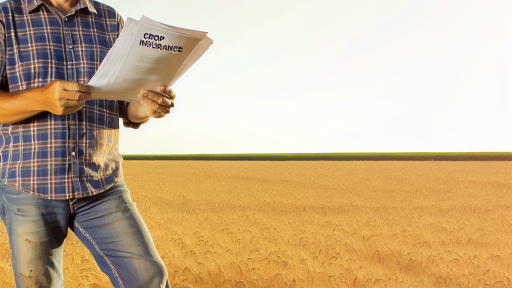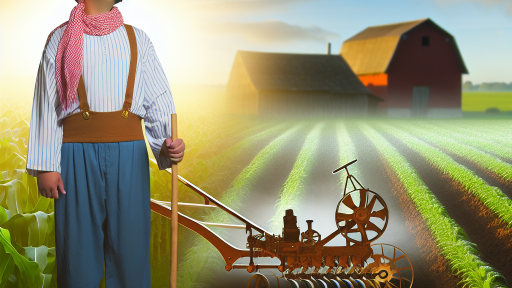Overview of Current Insurance Landscape in Agribusiness
The agribusiness insurance landscape is evolving rapidly.
Insurance providers are adapting to the unique challenges faced by farmers.
New technologies and climate patterns significantly impact insurance policies.
Emerging Trends in Agribusiness Insurance
Several trends are shaping the insurance offerings in agribusiness.
First, there is a growing demand for customized insurance solutions.
Policies that cater specifically to individual farm operations are becoming popular.
Moreover, the integration of technology is revolutionizing risk assessment.
For instance, drones and satellite imagery help assess crop health.
As a result, insurers can offer more accurate premium rates.
Climate Change and Risk Management
Climate change poses a significant challenge to agriculture.
Insurers are adjusting coverage to address these growing risks.
Natural disasters, such as floods and droughts, are more frequent.
This leads to higher claims and increased pressure on insurance providers.
Consequently, innovative risk management strategies are required.
The Role of Data Analytics
Data analytics plays a crucial role in modern insurance.
Transform Your Agribusiness
Unlock your farm's potential with expert advice tailored to your needs. Get actionable steps that drive real results.
Get StartedInsurers use big data to enhance underwriting processes.
They analyze historical weather patterns and yield data.
Additionally, predictive analytics can forecast potential risks.
This comprehensive approach results in more tailored policy offerings.
Collaboration with Agricultural Technology Companies
Partnerships between insurers and ag-tech firms are on the rise.
These collaborations foster innovation and better risk management.
For example, technologies like precision farming improve yield metrics.
This information helps insurers assess risk more effectively.
Ultimately, these alliances enhance the sustainability of agribusinesses.
Challenges Faced by Insurers
Despite these advancements, insurers face several challenges.
Adapting to regulatory changes requires agility and foresight.
Moreover, educating farmers on available coverage options remains vital.
Many farmers still lack awareness of their insurance choices.
Thus, effective communication strategies are essential.
Emerging Technologies Influencing Insurance Trends
Data Analytics in Agribusiness
Data analytics transforms how insurers assess risks in agriculture.
Farmers can now collect precise data from their operations.
This data helps insurance companies develop tailored policies.
Moreover, predictive analytics can anticipate potential losses.
Insurance firms use historical data to improve their models.
As a result, they offer better coverage at lower costs.
Remote Sensing Technologies
Remote sensing plays a key role in modern agribusiness insurance.
Drones and satellites provide valuable real-time insights.
This technology allows farmers to monitor crop health effectively.
Insurance companies assess risks more accurately with remote data.
Showcase Your Farming Business
Publish your professional farming services profile on our blog for a one-time fee of $200 and reach a dedicated audience of farmers and agribusiness owners.
Publish Your ProfileConsequently, they can respond quickly to emerging threats.
This fosters a proactive approach to risk management.
Blockchain for Transparency
Blockchain technology enhances transparency in insurance processes.
It securely records all transactions between farmers and insurers.
This transparency builds trust between parties involved.
Insurance claims can process faster as a result.
Farmers benefit from quicker payouts when disasters strike.
Additionally, blockchain minimizes the risk of fraud in claims.
Telematics in Agricultural Vehicles
Telematics collects data from agricultural vehicles in real-time.
This technology tracks vehicle usage and operational efficiency.
Insurers gain insights into driving behavior and risk factors.
With this data, they can offer customized insurance premiums.
Farmers can save on costs while ensuring adequate coverage.
Telematics improves overall safety for operations.
Artificial Intelligence Advancements
Artificial intelligence enhances risk assessment in agribusiness.
AI algorithms analyze vast amounts of data quickly.
They detect patterns that human analysts might miss.
Such insights enable insurers to create more precise policies.
AI tools help predict climate impacts on crop yields.
Thus, farmers receive tailored solutions for their specific needs.
The Role of Climate Change in Agricultural Insurance Policies
Climate Change: An Ongoing Challenge
Climate change poses significant risks to agribusiness operations.
Extreme weather events increase unpredictability in crop yields.
Farmers face drought, flooding, and temperature fluctuations more frequently.
Consequently, they need adaptive strategies to mitigate these impacts.
Adapting Insurance Models
Insurers are re-evaluating policies to address climate-related risks.
They are moving towards more flexible coverage options for farmers.
Innovative products include parametric insurance solutions.
This model pays out based on predefined weather conditions.
Data-Driven Approaches
Technology plays a crucial role in modern agricultural insurance.
Data analytics helps in assessing risks more accurately.
Insurers use satellite imagery and climate models for better predictions.
This data-driven approach supports tailored insurance plans.
Government Regulations and Support
Regulatory changes influence the agricultural insurance landscape.
Governments are incentivizing climate-resilient practices through subsidies.
These initiatives encourage farmers to invest in sustainable farming.
As a result, they can enhance their underwriting profiles.
Collaborative Efforts in Risk Management
Collaboration among stakeholders improves risk management strategies.
Farmers, insurers, and government agencies must work together.
Such partnerships can lead to more comprehensive coverage options.
Ultimately, these efforts promote resilience in the agribusiness sector.
Showcase Your Farming Business
Publish your professional farming services profile on our blog for a one-time fee of $200 and reach a dedicated audience of farmers and agribusiness owners.
Publish Your ProfileExplore Further: Effective Marketing Strategies for International Farms
Impact of Government Regulations on Agribusiness Insurance
Understanding Regulatory Frameworks
The agribusiness sector operates under various government regulations.
These regulations aim to ensure safety and fairness in the industry.
They dictate the necessary standards for insurance coverage.
Consequently, agribusinesses must stay informed about these requirements.
Influence on Insurance Policies
Government regulations directly impact insurance policy terms.
Insurers need to comply with specific coverage requirements.
That could involve adjustments to premium rates and deductibles.
Farmers and agribusinesses benefit from standardized coverage options.
Subsidies and Financial Support
Many regulations include subsidies to support farmers.
These financial aids can help cover insurance costs.
As a result, farmers can afford better coverage options.
Furthermore, these subsidies encourage risk management practices.
Risk Assessment and Management Requirements
Regulatory bodies emphasize risk assessment in agribusiness.
Insurers may require businesses to adopt certain risk management practices.
This approach mitigates losses caused by natural disasters or crop failures.
By enhancing risk management, businesses can lower their premiums.
Compliance Challenges for Agribusinesses
Complying with regulatory standards can be challenging for agribusinesses.
It often requires constant monitoring of changes in legislation.
Moreover, smaller operations may struggle to meet these demands.
Consequently, they may face higher insurance costs or coverage gaps.
Future Trends in Regulatory Impact
As climate change progresses, regulations will likely evolve.
New rules may emerge to address sustainability in agriculture.
Insurers must adapt their policies to these changing regulations.
Ultimately, staying ahead of regulatory trends is crucial for success.
See Related Content: Balancing Family and Business in Farm Succession
Cost Management Strategies Through Insurance for Farmers
The Importance of Risk Management
Farmers face various risks that can impact their bottom line.
Insurance acts as a financial safety net in uncertain times.
Additionally, it helps manage and mitigate potential losses.
Understanding these risks is vital for effective cost management.
Types of Insurance Relevant to Farmers
Farmers can choose from several types of insurance options.
Crop insurance protects against losses due to natural disasters.
Livestock insurance covers unexpected health issues or accidents.
Furthermore, farm liability insurance protects against legal claims.
Benefits of Using Insurance for Cost Management
Insurance aids in stabilizing a farmer’s income during tough times.
It allows farmers to reinvest in their operations quickly.
Moreover, insurance promotes financial planning and budgeting.
Strategies to Optimize Insurance Coverage
Review policies regularly to ensure adequate coverage.
Consider bundling different types of insurance for cost efficiency.
Engage with insurance advisors for tailored solutions.
Showcase Your Farming Business
Publish your professional farming services profile on our blog for a one-time fee of $200 and reach a dedicated audience of farmers and agribusiness owners.
Publish Your ProfileConduct risk assessments to determine necessary coverage levels.
Utilizing Technology in Insurance Management
Farmers can leverage technology to streamline insurance processes.
Digital platforms provide easy access to policy details and claims.
Furthermore, data analytics can improve risk assessment accuracy.
Case Studies of Successful Implementation
Several farmers have successfully used insurance for cost management.
For example, Maria Thompson increased her crop yields through proper coverage.
Additionally, James Roberts minimized losses with comprehensive liability insurance.
Looking Ahead: Future Trends in Insurance for Agribusiness
As technology evolves, insurance options will continue to expand.
Predictive analysis will enhance risk assessment capabilities.
Moreover, sustainable farming practices may open new insurance products.
Learn More: Enhancing Farm Success Through Strategic Partnerships

The Rise of Personalized Insurance Solutions in Agriculture
Understanding Personalized Insurance
Personalized insurance solutions cater directly to individual agribusiness needs.
This approach tailors coverage based on specific risk factors and requirements.
Moreover, it enhances the overall risk management strategy for farmers.
Benefits of Customized Insurance Programs
Custom insurance offers numerous advantages to agribusinesses.
It ensures that insurance policies align with unique farming operations.
This alignment reduces unnecessary costs and improves coverage efficiency.
Consequently, businesses can allocate funds more effectively for growth.
Technological Innovations Driving Change
Technology plays a vital role in the growth of personalized insurance.
Advanced data analytics helps insurers assess individual risks accurately.
Farmers can now receive real-time information regarding potential threats.
Furthermore, mobile applications enable easy access to policy management.
Case Studies Demonstrating Success
Several agribusinesses have experienced positive outcomes with personalized insurance.
For example, Green Acres Farms implemented a bespoke policy tailored to their crop variety.
As a result, they improved their claim processing time significantly.
Additionally, Happy Valley Orchards utilized data-driven insights to enhance their coverage.
Their approach minimized losses during adverse weather conditions.
Future Prospects for Agribusiness Insurance
The future of insurance in agriculture looks promising.
More insurers are adopting innovations that prioritize personalization.
As a result, farmers can expect further advancements in coverage options.
This trend will likely lead to a more resilient agricultural landscape.
See Related Content: Strategies to Successfully Expand Your Farm Internationally
Navigating Risks: Crop Insurance vs. Livestock Insurance
Crop Insurance Overview
Crop insurance protects farmers from financial losses due to crop failure.
It covers risks such as drought, floods, and pest infestations.
Farmers can choose between multiple policies tailored to their needs.
This flexibility allows them to select coverage levels that suit their operations.
Importance of Crop Insurance
Crop insurance plays a crucial role in modern agribusiness.
It provides growers with financial security during adverse weather conditions.
Moreover, it helps stabilize their income, enabling better planning.
Access to reliable financial support fosters confidence among farmers.
Showcase Your Farming Business
Publish your professional farming services profile on our blog for a one-time fee of $200 and reach a dedicated audience of farmers and agribusiness owners.
Publish Your ProfileLivestock Insurance Overview
Livestock insurance offers protection for farmers raising animals.
It covers risks such as disease, accidents, and theft.
This type of insurance is essential for safeguarding investment in livestock.
Farmers can choose policies that cover specific needs, enhancing their security.
Importance of Livestock Insurance
Livestock insurance is critical for ensuring business continuity.
It helps farmers manage the financial impact of unexpected losses.
Additionally, it allows them to reinvest in their operations quickly.
A robust insurance policy builds resilience against potential market fluctuations.
Comparing Crop and Livestock Insurance
Both crop and livestock insurance are vital for risk management in agribusiness.
Crop insurance primarily addresses agricultural production risks.
In contrast, livestock insurance focuses on animal-related risks.
Farmers must evaluate their specific needs to choose the right coverage.
Future Trends in Insurance
The insurance landscape continues to evolve to meet farmer needs.
Innovations in technology are streamlining claim processes.
Moreover, data analytics helps customize insurance products effectively.
As policies develop, both crop and livestock insurance will adapt to new challenges.
Future Predictions: Insurance Trends to Watch in the Next Decade
Advancements in Technology
Technology will revolutionize agriculture and insurance practices.
Drone technology will enable remote monitoring of crops.
Moreover, insurance companies will use satellite imagery for assessments.
Artificial intelligence will streamline claim processing and underwriting.
Data analytics will foster personalized insurance solutions for farmers.
Climate Change Adaptability
Climate change will significantly impact agribusiness insurance models.
Insurers will need to develop products that reflect changing weather patterns.
New policies will focus on risk mitigation strategies.
Additionally, coverage options for natural disasters will become more prevalent.
Increased Regulation and Compliance
As the industry evolves, regulations will likely tighten.
Insurers will need to comply with government policies on sustainability.
Transparency in operations will become crucial for maintaining trust.
Furthermore, adherence to environmental guidelines will become mandatory.
Customized Coverage Solutions
Farmers will increasingly seek tailored insurance products.
Insurers will respond by offering modular coverage options.
This approach will meet the unique needs of specific crops and regions.
Consequently, more flexible policies will emerge in the market.
Emergence of Blockchain Technology
Blockchain will enhance transparency and traceability in agribusiness.
Smart contracts will automate various insurance processes.
This technology will reduce fraud and streamline claims management.
Focus on Sustainable Practices
There will be a greater emphasis on sustainable practices in agriculture.
Insurers will promote eco-friendly farming techniques through incentives.
This shift toward sustainability will drive innovation in policy offerings.
Additionally, insurers will support farmers in achieving sustainability goals.
Showcase Your Farming Business
Publish your professional farming services profile on our blog for a one-time fee of $200 and reach a dedicated audience of farmers and agribusiness owners.
Publish Your ProfileAdditional Resources
Climate Change | Economic Research Service




